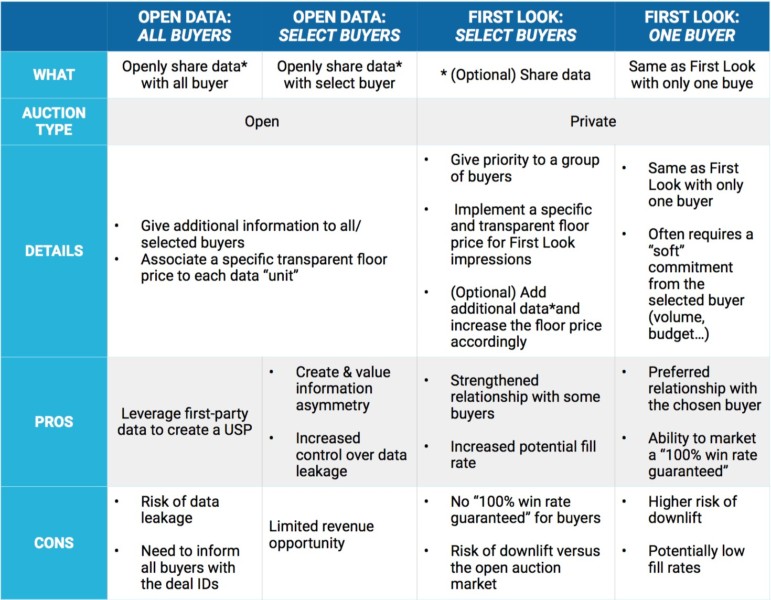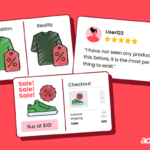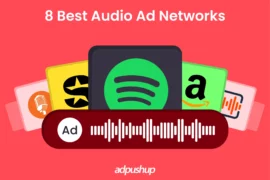Here’s all you need to know about how to make the most out of Private Marketplace (PMP) deals. From basics to advanced tips to make the most out of it, our blog has everything you need to know.
Ad spending on Private Marketplace (PMPs) has grown markedly over the last few years. So, why is this happening? Why are publishers shifting from open exchanges to PMPs? There are key reasons for this trend.
Unlike open auctions, PMP is an invitation-only bidding process where publishers invite selected buyers to take place in real-time bidding.
The publishers set a minimum price for the bidding that is referred to as the ‘floor price’ and is negotiated before the auction starts.
What is a PMP Deal?
Imagine dealing directly with the source instead of going to a heavily crowded marketplace. That’s exactly what the Private Marketplace deal represents. PMP deal is a programmatic media buying method that the publisher sets up only for select advertisers.
In simple words, instead of using open ad exchanges that have a lot of competition and give low CPM rates, publishers can directly sell their ad inventory to advertisers who are a perfect fit for their audience.
It’s a win-win situation for both advertisers and publishers because, with Private Marketplace Deals, advertisers get better results, and publishers end up making more money.
How to Locate Advertisers?
Finding the right advertisers for your website is as tough as setting the right price for ad space. Many big publishers have dedicated sales teams to look out for relevant advertisers for their websites, but how does it work?
You need to:
Research Advertisers
Private Marketplace (PMP) deals are about matching your audience with the relevant advertiser.
For instance, if your content is around managing finance and your major audience represents young adults, your ad spaces should be covering ads related to student loans or beginner-friendly credit cards.
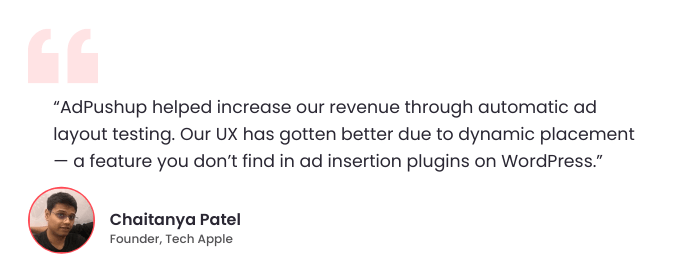
Build Relationships:
Once you have found your potential advertisers, building a solid relationship with them based on common ground and trust will lead to long-term partnerships and generating more revenue.
Quick Benefits of a Private Marketplace/PMP Deal are:
- PMP deals give publishers better inventory control.
- Direct access to first-party data for advertisers.
- Allow publishers to invite advertisers to bid selectively.
- Improves ROI and pricing for publishers and brand safety & response rates for advertisers
PMP deals provide benefits for both publishers and advertisers.
For Advertisers, the main benefits are:
- Access to premium inventory
- Brand safety and transparency
For Publishers, the main benefits of PMP deals are:
- Better quality ads from the advertiser
- Higher eCPMs rate
- A stronger relationship with advertisers
How to Optimize PMP Deals to Maximize Revenue?
When it comes to a practical approach, knowing how to turn situations in your favour is an art. Since it’s a rule of thumb that through PMP deals, you have to reach out to advertisers, here are some tips that can help you out:
All about Audience
Catering to your audience’s needs and understanding them can get you ahead in your PMP deals. Understanding their demographics and interests will help you in two ways: first, grow your website traffic, and second, allow you to track user behaviour.
Advertisers look out for inventory that reflects their brand and if your content matches their audience, every Private Marketplace deal will work out in your favour.
Understand the Seasonality
Typically, the second half of the year brings more revenue because of the holidays, increased advertisers’ budgets, and market trends bring. This seasonality effect boosts advertising and marketing industry, which also leads to more Private Marketplace deals. But make sure, you’re well-versed with the seasonality trends and find out what works and what not.
Master your competition
The value of your ad inventory is highly dependent upon the competition. If you are a top player in your niche, advertisers will be ready to pay more, but if there is heavy competition, you might have less room to negotiate the price.
Ad inventory values change fast, depending on the market.
Balance it out
You need to find the balance between you and the advertisers. If the price is set too high, the advertiser might make a pass at the offer, leaving you with two options: either sell at a lower price at the open market or not sell at all.
Second, if your pricing is too low, you’ll end up losing money. So, make sure that price that you set shows your value and makes sense. That way, PMP deals can turn out to be a win-win situation for you.
Looking for help setting up PMP deals and meeting your ad revenue goals? Get in touch with us to help you out.
Stats and Facts of Private Marketplace (PMP Deal)
eMarketer predicted that by the end of 2024, PMP spending will represent 75% of total programmatic digital display ad spending, compared to 8.5% being spent on the open exchange.
Source: Emarketer
Private Marketplace (Pmp) deals have seen significant growth compared to last year because they help publisher sell their ad inventory to target niche-specific advertisers and, on the other hand, advertisers as well, by allowing them to target more niche-focused audiences.
5 Tips to Make Your PMP Deals More Exclusive
Private marketplaces allow publishers to select or release premium inventory to a select group of advertisers who are willing to pay a higher CPM price tag. For a successful PMP deal between Publisher and Advertiser, here are a few key suggestions to consider:
1) Analysis of Marketplaces (Open vs Private)
A growing number of publishers are turning to PMPs to meet the stringent requirements of advertisers. But as we all know that CPM rates depend on the type of marketplace.
So, before you start negotiations with the advertisers, ensure that you have analyzed the value of inventory as per the open auction marketplace. It gives publishers the benefit of offering the ideal and right CPM rate in front of the advertisers and proceeding with the PMP deal.
On the other hand, in Private Marketplace deals, publishers can share their first-party data with the buyers. And advertisers can reserve the ad inventories and ensure that every ad impression matches their first-party data list. Private marketplace deals are more targeted and premium than open auction deals, which is reflected in the price.
It’s relevant for top advertisers who demand brand safety and better ad viewability. And for publishers, this means a higher price for ad impressions. So, this is a win-win condition for all.
2) Make your Ads More Relevant
It is recommended to have PMP partners on the client side because client-side header bidding offers better match rates as you can enable cookie-syncing via your ad-tech partner.
Additionally, utilize key-value targeting in Google Ad Manager to enhance the targeting capabilities. Using key-value targeting, you can pass the context of the page, ad placements, etc., and allow the advertiser to display ads on the particular section or page.
Ad viewability is the main factor that matters within the Private Marketplace and Open Marketplace. It can be overlooked in the open auction to some extent. But in PMP deals, the viewability score is something that cannot be neglected. So, if you have set long-term goals for your PMP deals, you should first optimize the viewability of your ad inventories.
3) Use a Variety of Ad Creatives
Rich media creatives and video creatives yield better results than display creatives. For a PMP deal, offering a variety of ad format types, including video, display, and native sizes, along with rich media, will boost ad revenue to a great extent.
In addition, include custom ad sizes and formats that have a high impact across different devices for PMP deals. And make sure that high-performing ad sizes are kept at the higher floor price.
4) Offer a Fair & Transparent Deal
Transparency in PMP deals matters a lot. Whether it is a header bidding set-up or a PMP set-up, advertisers are most likely to invest more time and budget where they find granular insights and better transparency. For this reason, DSPs acknowledge full domain URLs sent by the ad request in deals.
However, many DSPs are limited to targeting the base domain and have no capability to go more granular. In such cases, publishers can offer contextual relevance to buyers within their PMP deals and encourage the targeting of the ads at the content level as well as position level.
5) Check For Roadblocking
Although header bidding has created a fair platform by levelling the buyers at the same level, it has also reduced the priority of buyers who are exclusively looking for direct access to valuable ad inventories. Due to this fact, PMPs and various other solutions are being introduced in the marketplace.
One such example is Roadblock. Roadblocking is the feature that enables a publisher to display ads from a single advertiser on the same webpage at the same time. That means a 100% share of voice (SOV) for an advertiser.
Once you have selected the best partners and understand the goals of advertisers, develop a strategy and keep optimizing the deals at regular intervals of time.
Role of Deal IDs in a Private Marketplace (PMP Deal)?
The Deal ID in a private marketplace is a line item of the unique string of characters that defines floor pricing and data depending on what platform you’re using.
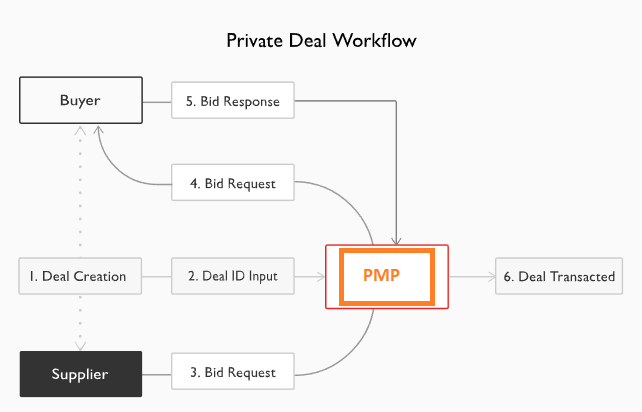
- There can be multiple types of Deal IDs depending on how many publishers and advertisers are connected and where the deals are being accessed.
- A deal ID allows publishers to provide buyers with a curated selection of inventory in an invite-only auction at a specified CPM price.
- Publishers can use this deal Id to connect to buyers on supported Demand Partners (DSPs).
How to Set up a Deal ID
To set up a deal ID, the following information is needed:
- Buyer name
- Buyer seat ID
- DSPs
- Start and end date/time
- CPM price
- Targeting and capping settings
- Audience Targeting
- Inventory on which the Deal ID will run
Deal IDs not only allow advertisers and publishers to successfully execute their media strategy but also maximise revenue opportunities.
Here are a few more reasons why Publishers should be doing private marketplace auctions with deal IDs:
- It offers reliability, control and flexibility over premium ad inventories to both publishers and advertisers.
- Provide better quality ad campaigns than the open market, as buyers with deal Id can only bid and win the impressions.
- It offers transparency in the process of buying inventories to both publishers and buyers, which means better revenues.
- On a deal Id, publishers can set multiple criteria like pricing and ad placements that don’t impact page load speed.
What’s Next?
Finally, Programmatic PMP deals help publishers to better optimize their ad revenue because it offers premium ad placement and viewability scores, and eCPMs in PMP deals are often higher.
If you are looking to learn more about how you can also benefit from PMP deals, let us know. We make sure that our partners are using the most innovative tools and efficient technologies to help you grow.
FAQ
PMP stands for Private Marketplace Deals, where publishers can sell their ad inventory to a specific group of advertisers based on their niche and brand relevance toward their audience through a private auction.
PMP deals are a part of RTB (real-time bidding), where publishers offer ad slots to the selected advertisers. Commonly, both publishers and advertisers benefit from PMP deals as they generate more revenue and target relevant audiences.
Both Private Marketplace (PMP) and Programmatic Guaranteed (PG) deals are exclusive deals offered by publishers to advertisers. PG deals are a direct contract between the publisher and a specific advertiser, whereas PMP deals are based on RTB (real-time bidding).
a) Higher CPMs
b) Programmatic Efficiency
c) Transparent Process
d) No Direct Sales Team
a) Premium Inventory
b) Programmatic Efficiency
c) Brand Safety
d) Transparency in Deals
With PMP advertising, your ad space inventory is privately offered to selected advertisers. Publishers can also set a premium rate for their exclusive inventory while ensuring that the ad creatives used are relevant to their audience.


